Stay in the know on all smart updates of your favorite topics.
How Smart Cities & Technology Are Evolving

Over the centuries, each urban expansion was followed by a period of catching up to face a new, more complex reality. We still experience it today when we know that more than half a million people sleep on the streets in the United States every night and that rents are rising faster than incomes.
In London, between 1997 and 2016, the number of jobs and the population increased by 40% and 25% respectively, while accommodation capacity only increased by 15%. The average American employee's commuting time has reached new records: an average of 225 hours per year (or more than nine days in total) is spent on the road or in transport.
As in the past, the current reality and the future of a physical place requires a good understanding of the place in question. This is why the meaning of place in a city stems both from its logistical environment and from the social and emotional context that unites its inhabitants.
What smart city technonoly does in percentage
The explosion of integrated sensors, mobile devices, high-speed wireless connections, combined with exponential growth in data and sophisticated analysis tools, offers geospatial perspectives that go beyond the theoretical framework. This led to the birth of “smart cities”. McKinsey estimates that the technologies deployed by smart cities can reduce mortality by 8 to 10%, improve rescue response times by 20 to 35%, decrease travel times by 15 to 20%, decrease by 8 to 15% disease burden and 10-15% reduction in greenhouse gas emissions.
A new generation of smart cities
Despite some setbacks here and there, on a global or national scale, metropolises, communities and neighborhoods have followed the path of progress, with more concrete results. According to many futurists, we are in the midst of a new generation of smart cities with a more pragmatic sense of city management. Cities that not only apply intelligence to their macro-systems, but seek to optimize micro-sites for global transformations.
A true smart city uses dynamic 3D digital basemaps to obtain real-time information on the condition of neighborhoods, residential areas or buildings down to the lowest level (floor, corridor and housing) or highest (above existing structures such as the roof).
By making all this information accessible to managers; police officers, firefighters and first aid personnel, public transport employees, care providers, grocers and traders, distributors, teachers, social workers, and especially to the inhabitants, each individual will be able to know where the bus is and at what time it will arrive, where a leak has occurred on the water distribution network, in which car parks there are still free spaces,
The coronavirus pandemic has demonstrated the value of a collective city-wide solution, which involves knowing where people in difficulty are and how to help them. For Alison Brooks, a pioneer on innovative ideas:
As we have seen, a smart city must respond to four major challenges:
- Operational Efficiency: Streamline business processes and workflows to improve decision making and locate resources for maximum benefit. The digital dashboard is the ideal tool for this.
- Data-driven performance: take advantage of data flows from the Internet of Things (IoT), mobile devices, but also sensors that are part of the city's infrastructure, vehicles and buildings, then analyze the whole this data thanks to artificial intelligence. This has made it possible to achieve concrete results such as the adaptive regulation of traffic lights, or real-time (and no longer static) decision-making at the scale of the city and professional services.
- Citizen involvement: Some smart cities of the first wave encountered cultural and societal obstacles in deploying the technology without asking the opinion of the inhabitants. True smart cities involve communities from the start, identifying the priorities of the inhabitants, responding to the specific concerns and needs of different groups and working for greater social equity.
- Planning and engineering: 3D modeling, profoundly transformed by the digital revolution and human-centered design, makes it possible to anticipate and mitigate economic, environmental or social upheavals and the resulting tensions. These cards, also known under the name of “digital twins”, take into account a multitude of elements (buildings, infrastructure, vegetation, transit, etc.) down to the smallest level (floor or room, for example). They are the underlying platform of the true smart city.
The history of our species, that is to say of human civilization, in fact merges with the history of the city ; both have the same Latin origin. The city and its systems have allowed a real concentration of resources and the emergence of an entrepreneurial spirit and collective creativity that have won over the entire planet. Thanks to powerful leaders who think outside the box and the cutting-edge tools available to us today and the lessons we have learned from this experience, we have the possibility of reinventing these systems to promote a fairer, more sustainable and more harmonious development model.
Note from ASC: Have a question? Let’s hear it in the comments.
Centre of Expertise Applied AI launches magazine

Artificial Intelligence (AI) and Data Science permeate all the capillaries of society. The scientific developments in these fields are rapid. The applications affect all sectors and professions - to a greater or lesser extent - for which the Amsterdam University of Applied Sciences (AUAS) trains.
The AUAS Centre of Expertise Applied AI exists since February 1, 2021 and focuses on the meaningful application of AI techniques in a specific context (healthcare, accountancy, media, retail, etc.). In seven application-oriented labs we work together in co-creation - with education, research, business and civil society organizations - on innovation.
In this way, we train students and retrain professionals to be change-makers for companies and organizations. In this way, we are shaping the digital transition in a real, responsible and inclusive way. And we make the connection between fundamental and practical research, aimed at the daily application of AI in companies and other organizations. In this way, the AUAS contributes to an inclusive digital transition.
In our magazine we proudly present our seven labs and discuss the importance of our Centre of Expertise. We hope you get a good impression of our methods and approach.
You can find the digital magazine (in Dutch) here 👉🏻 https://heyzine.com/flip-book/552a2865a3.html#page/1
Would you like to receive a hard copy? Then leave your details here 👉🏻 https://forms.office.com/pages/responsepage.aspx?id=HrsHCfwhb0eIQwLQnOtZp8XlcpMWAw9ErQhBMXC83PVUQUhKUjJXUUZMU0o2V003S1ZPMk5VRVU4WS4u
If after reading this you are interested in working together, please contact us at appliedai@hva.nl
Alle sprekers bekend van de Smart Energy Community morgen (dinsdag 8 juni)

Beste allen,
Jullie hadden nog een update tegoed, aangaande het panel dat morgen discussieert in de laatste editie van de Smart Energy Community van dit seizoen.
We gaan met deze 3 experts in op de toekomstverwachtingen voor slimme energiediensten:
- George Trienekens van TenneT,
- Marten van der Laan van Hanzehogeschool,
- Michel Muurmans van Eneco
Het hele programma kunt u hier vinden:
https://www.smartenergycommunity.nl/webinar8juni2021
Digital Circular Economy: An Emerging Framework

Researchers Sultan Cetin (TU Delft), Catherine De Wolf (ETH Zurich) and Nancy Bocken (Maastricht University), have developed a novel framework combining Circular Economy principles and life cycle stages of buildings, and mapped ten potentially enabling digital technologies.
These include:
- Additive/robotic manufacturing;
- Artificial intelligence;
- Big data and analytics;
- Blockchain technology;
- Building information modelling;
- Digital platforms/marketplaces;
- Digital twins;
- The geographical information system;
- Material passports/databanks;
- The internet of things.
Their framework can be used to create roadmaps or map your value network in your circular operations.
You can access their article freely.
Green Deal - mogelijkheid voor gemeenten om energietransitie, CO2 reductie en innovatie te stimuleren.

Frans Timmermans, Chef Klimaat van de Europese Commissie, lanceerde op 11 december de Europese Green Deal, het baanbrekende klimaatplan dat van Europa in 2050 het eerste klimaatneutrale continent in de wereld moet maken.
Met de Green Deal gaat Europa een ongekende uitdaging aan, die tegelijk ook nieuwe kansen biedt. Het eerste doel ligt al in 2030. Dan moet de CO2-uitstoot met 55 procent zijn teruggedrongen (versus 1990).
13 procent van het totale elektriciteitsgebruik schrijven we vandaag op het conto van verlichting – in 2006 was dat nog 19%. Met de totale omschakeling naar LED kan dat worden teruggebracht naar maar liefst 8 procent of bijna de helft in 2030. De missie moet dan ook zijn om LED-verlichting tot een algemeen goed en zelfs een verplichting te maken; niet alleen in de Benelux, maar ook zeker in Europa.
Ter illustratie: Als we vandaag zouden overgaan naar een totale ver-LED-ding van Europa, betekent dat over de periode 2006 – het jaar waarin werd opgeroepen om de gloeilamp wereldwijd uit te faseren – tot 2030 een besparing van 198 megaton aan CO2. Dat staat gelijk aan 267 elektriciteitscentrales of pakweg 50.000 (vijftig duizend!) windmolens.* De besparing voor Nederland alleen is 3,5 megaton aan CO2. Dat staat gelijk aan het elektriciteitsgebruik van drie miljoen huishoudens volgens de Nederlandse Licht Associatie en Fedet.**
Met de Green Deal ligt de weg open om de ver-LED-ding in Europa te versnellen. Dat is echt noodzakelijk en haalbaar: bijna 85 procent van alle lichtpunten in de Benelux kan nog vervangen worden door (connected) LED-lampen.
De voordelen voor gemeenten:
- Significante reductie van de CO2 uitstoot
- Energiebesparing
- Data gedreven onderhoud - transparant - veilig
- Veiligheid stad
- Toekomstbestendig - klaar voor digitalisatie
- Te integreren met een Smart City applicatie
- Eenvoudig beheer
Met het gebruik van de Green Deal kunnen gemeentes hen project laten subsideren als deze voldoet aan een aantal voorwaarden. Wij denken hier graag in mee.
Meer info over de Green Deal via de link.
Metropolitan Mobility Podcast met Maurits van Hövell: van walkietalkies naar het Operationeel Mobiliteitscentrum

“Voorheen werd er gewoon rondgebeld: ‘Wij zitten in de instroom van de ArenA. We hebben nu 20.000 man binnen. Hoe gaat het bij jullie op straat?’” In de achtste aflevering van de serie A Radical Redesign for Amsterdam, spreken Carin ten Hage en Geert Kloppenburg met Maurits van Hövell (Johan Cruijff ArenA). Hoe houdt je een wijk met de drie grootste evenementenlocaties van het land, bereikbaar en veilig? Ze spreken elkaar in het Operationeel Mobiliteitscentrum over de rol van de stad Amsterdam, data delen en het houden van regie. A Radical Redesign for Amsterdam wordt gemaakt in opdracht van de Gemeente Amsterdam.
Luister de podcast hier: http://bit.ly/mvhovell
Advies Digitaal duurzaam - Overheid moet sturen op duurzame digitalisering

Digitale technologie en datagebruik veranderen onze samenleving ingrijpend. Dit heeft grote gevolgen voor de duurzaamheid van onze leefomgeving. Hoewel digitalisering en duurzaamheid onlosmakelijk met elkaar zijn verbonden, is hiervoor onvoldoende aandacht in het overheidsbeleid. In zijn advies ‘Digitaal duurzaam’ concludeert de Raad
voor de leefomgeving en infrastructuur (Rli) dat de overheid veel krachtiger
moet ingrijpen in en gebruik maken van de digitale wereld om duurzaamheid te
bevorderen.
Smart Health Amsterdam is looking for an intern Communication & Events
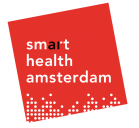
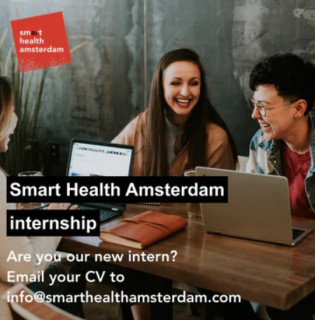
Looking for an internship where you can develop new skills in communications, marketing, PR and event management? Do you have an interest in how AI & data science can contribute to a healthier society and better medical care? Want to work as part of a fun and inspiring team?
As Amsterdam’s key network for data- and AI-driven innovation Smart Health Amsterdam (Gemeente Amsterdam & Amsterdam Economic Board) in #the #life #sciences and #health sector, we’re looking for an intern. Interested? Get in touch today.
https://smarthealthamsterdam.com/p/jobs-at--smart--health--amsterdam Smart
Nieuwe website Onderneeminalmere.nl
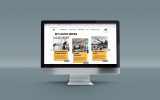
Almere is in ruim 40 jaar een ondernemende stad van betekenis geworden. Er zijn meer dan 18.000 bedrijven gevestigd en er is nog steeds volop ruimte voor groei. De ligging langs de A6, A27 en Hanzelijn en de nabijheid van Schiphol zijn gunstig en de beroepsbevolking is relatief jong. Om dit alles nog beter voor het voetlicht te brengen, hebben de afdeling Economische Zaken en het Ondernemersplein van de Gemeente Almere samen met Almere City Marketing een nieuwe website gelanceerd: www.onderneeminalmere.nl.
Doel van de website is om Almere op de kaart te zetten als dé plek om te ondernemen. De focus ligt daarbij op de sterke punten van Almere als stad om te ondernemen, om zo nieuwe ondernemers en bedrijven te werven en zich te vestigen in de stad. In 2017 won de stad de titel Beste Binnenstad en in 2019 werd Almere gekozen tot MKB-vriendelijkste stad. Almere heeft de ambitie om de economische ontwikkeling van de stad te versterken, zodat een robuuste lokale economie ontstaat. De focus ligt daarbij de komende jaren op ICT- Tech, logistiek, toerisme en recreatie, startups en scaleups en circulaire economie.
Almere heeft en geeft letterlijk en figuurlijk ‘ruimte om te ondernemen’. Hiervoor zijn prachtige verhalen verzameld over ondernemen in Almere. Belangrijk, want er zijn hier geweldige bedrijven actief en de stad heeft op zakelijk gebied veel te bieden. Op de nieuwe website is van alles te vinden op zakelijk gebied. De belangrijke thema’s uit de economische agenda worden belicht, evenals de bedrijventerreinen met de beschikbare bouwkavels. Daarnaast is er een agenda met alle business events. Voor ieder type ondernemer is er relevante informatie te vinden, bijvoorbeeld om contact te leggen met de gemeente, zakelijke partners te vinden of over vestigingsmogelijkheden in de stad. Ook het Ondernemersplein is een belangrijk onderdeel van de website. Starters, zzp’ers, mkb’er en ondernemers in zwaar weer kunnen hier terecht voor praktische informatie, programma’s, events en advies.
Branchevereniging ICT en Telecommunicatie Grootgebruikers (BTG) is partner van Amsterdam Smart City
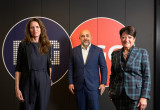
Branchevereniging ICT en Telecommunicatie Grootgebruikers (BTG) sluit zich als Associate Partner aan bij Amsterdam Smart City. Dit betekent dat we onze netwerken aan elkaar verbinden, relevante verbindingen leggen en gezamenlijke events organiseren. BTG is ook lid geworden van de Network Council van de Amsterdam Economic Board.
“Bij het netwerk van Amsterdam Smart City gaat het om het maatschappelijk waardevol inzetten van technologie. Publieke waarde creëren, en technologie inzetten vanuit een menselijk perspectief. Met BTG delen we deze doelstelling en hebben we een gedeeld, maar zeker ook aanvullend netwerk. Hiermee kunnen we elkaar versterken en samen nog meer waarde aan onze maatschappij toevoegen”, aldus Leonie van den Beuken, programma directeur Amsterdam Smart City.
“De digitalisering verandert onze wereld razendsnel; met COVID-19 en de uitrol van 5G als recente aanjagers. BTG zet vol in op deze digitale versnelling samen met haar Solution Partners en Leden. Op deze wijze wordt de leefbaarheid in steden en regio’s verhoogd. Nieuwe innovaties in het smart domein staan hoog op de agenda bij BTG door de inzet van de diverse Expertgroepen op het vlak van IoT, 5G, AI, Security, Smart Society etc. De verkregen best practices worden door BTG ingezet bij het Amsterdam Smart City netwerk. Co-creatie en complementaire
werking, pur sang,” aldus Petra Claessen, CEO BTG/TGG.
Het partnership heeft al geleid tot het gezamenlijk organiseren van twee events in november vorig jaar. Onder de noemer ‘De mindset voor een menselijke slimme stad’ en ‘Hoe kan 5G bijdragen aan verduurzaming van steden?’ hebben we twee bijeenkomsten georganiseerd waarin we met belangrijke stakeholders in gesprek zijn gegaan over de vragen 'Hoe creëren we duurzame en leefbare steden?' 'Hoe kan technologie hierin een nuttig middel zijn?' 'Hoe zetten we mensen centraal in deze steden en nemen we hun waarden mee in de ontwikkeling?'
Bekijk hier de Highlights van beide events.
Belijk hier een verslag van ‘De mindset voor een menselijke slimme stad’
Metropolitan Mobility Podcast: De stad slimmer en schoner van goederen voorzien?
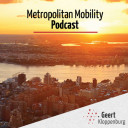
In deze podcast gaat Geert Kloppenburg in gesprek met Walther Ploos van Amstel en Carin ten Hage over digitale voorwaarden voor gezonde stadslogistiek. Luister hier de podcast: http://bit.ly/38ASVZ
Future Fitness Garden
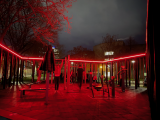
Getting fit and healthy again in 2021? Since the citywide lockdown, members of local sport-clubs have been forced outdoors. One of the most popular (outdoor) fitness areas on the Amsterdam waterfront has been the Marineterrein. In our latest project “Future Fitness Garden” we explore how smart lighting can remind us of safe distancing and capacity in public space during Corona.
Using algorithms we can anonymously detect proximity and density of people working out. For example if they come within 1,5 meters to one another the LED strips turn BLUE. If there are too many people occupying the area the LED will turn RED. This system gently reminds guests to respect each other’s space while sharing the future fitness garden.
Thanks to project partners Marineterrein Amsterdam. Compliments to AI genius Markus Pfundstein, Electrical Mechanical Wizard Werner Pfundstein
Check the recording of our event 'Data Dilemmas: Digital twins - hype or necessity?'

With the growing availability of data and technology, digital versions of objects or systems are getting more interesting. Pairing the virtual and physical world, it is possible to continue critical physical processes while digitally experimenting and looking for improvements. The ‘digital twin’ therefore is an interesting feature, also in urban development.
In a discussion with a number of digital twin projects, we addressed opportunities and barriers. Are current projects more than 3D models? What are the key enablers and challenges in starting digital twins for urban applications? Which steps are the most difficult to implement? Do we fully trust on the system and will reality be handled by a computer? How are decisions for further development made?
Speakers:
- Wietse Balster - geo information advisor at City of Amsterdam
- Eric Jeansson - project manager at City of Gothenburg
- Paolo Pileggi - IT program developer & Walter Lohman - project lead at TNO
Moderator:
- Leonie van den Beuken - program director Amsterdam Smart City
Catch the presentations here:
Hogeschool van Amsterdam gaat mkb helpen met digitalisering

FOR ENGLISH CLICK HERE
Staatssecretaris Mona Keijzer heeft dertien mkb-deals ondertekend. Daarmee draagt haar ministerie van Economische Zaken en Klimaat (EZK) met ruim zeven miljoen euro bij aan regionale mkb-projecten van provincies en gemeenten. Bedrijven krijgen daardoor een impuls om te innoveren, digitaliseren en internationaal te opereren. De Hogeschool van Amsterdam (HvA) is bij twee deals over digitalisering betrokken; een belangrijke speerpunt binnen de hogeschool.
In de regio’s Groot-Amsterdam en Gooi en Vechtstreek gaat de HvA mkb’ers helpen met digitaliseringsvraagstukken. Waar mogelijk wordt binnen de twee deals samengewerkt. Veel ondernemers willen en moeten wel aan de slag met digitalisering, maar hebben het gevoel kansen te missen. Zo hebben mkb’ers moeite om zich aan te passen aan bepaalde tekorten op de arbeidsmarkt, de opkomst van (digitale) platformen, verduurzaming, globalisering en recent COVID19.
Digitaliseringsoffensief voor mkb in regio Groot-Amsterdam
In de regio Groot-Amsterdam heeft het HvA Expertisecentrum Applied Artificial Intelligence samen met partners het mkb Digitaliseringsoffensief gelanceerd. Dit project draagt bij aan de kennis en kunde van ondernemers op het gebied van kansen (gebruik van data, online marketing, sales en automatisering), risico's (veilig ondernemerschap) en het gebruik van digitale tools.
Met het digitaliseringsoffensief wil het consortium in Amsterdam minimaal 30.000 mkb-bedrijven bereiken om hen te wijzen op de kansen en mogelijkheden van digitalisering. Aan minimaal 750 bedrijven wordt een zelfscan aangeboden, waarna ze doorverwezen worden naar diverse online trainingen op het gebied van digitalisering en data-analyse, passend bij het volwassenheidsniveau van hun bedrijf.
Via een online platform wordt het mkb gekoppeld aan mkb-bedrijven die al innovatief bezig zijn en kennis kunnen delen. Voor mkb-bedrijven die echt intensief met digitalisering aan de slag gaan, zijn er intensieve trainingstrajecten en coaching. Vanuit het expertisecentrum zal het lab dat zich richt op retail en marketing - het Centre for Market Insights - het mkb gaan helpen met de eerste stappen van digitalisering (onder meer ontwikkelen van de zelfscan en online trainingen).
Het consortium voor het mkb Digitaliseringsoffensief bestaat naast de HvA uit MKB Amsterdam en Ready to Scale (onder leiding van Stichting THE Startup Network). De gemeente Amsterdam heeft de deal geïnitieerd.
Lees in het digitaal magazine meer over de mkb-deal in Groot-Amsterdam
Digitaal en fysiek loket voor mkb’ers in Gooi en Vechtstreek
Met de andere mkb-deal gaat de HvA mkb’ers in de regio Gooi en Vechtstreek digitaal klaarstomen. Het project SPOT 035 organiseert een digitaal en fysiek loket voor mkb’ers met digitaliseringsvragen. Op het Media Park in Hilversum krijgen ondernemers toegang tot een regionaal netwerk van studenten, kennisinstellingen en ‘digital frontrunners’ (toonaangevende technologie- en mediabedrijven).
Het online en fysieke platform biedt voorlichting, helpt bij het opstellen van een digitaliseringsstrategie en begeleidt ondernemers in de stap naar realisatie en financiering. De HvA heeft bij SPOT 035 de lead, omdat zij veel ervaring heeft met het oplossen van digitale vraagstukken van bedrijven. Bovendien is het een van de manieren waarop de HvA haar doelstelling - bedrijven en professionals helpen met transformatie- en kwalificatievraagstukken - ook echt in de praktijk kan brengen. Het project heeft als doel dat meer mkb-bedrijven met digitalisering aan de slag gaan, waardoor zij bestaansrecht hebben en houden, groeien of zelfs nieuwe business gaan opzetten.
Voor SPOT 035 werkt de HvA nauw samen met de gemeente Hilversum, regio Gooi en Vechtstreek, BV Hilversum, MBO College Hilversum en Media Perspectives.
Lees in het digitaal magazine meer over de mkb-deal in Gooi en Vechtstreek
Official launch of this new online platform!
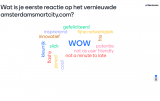
Today, in a liveshow together with BTG and the City of Almere, aired from Pakhuis de
Zwijger, Leonie van den Beuken, program director, officially launched the new
Amsterdam Smart City platform.
The first contribution? Made by the community!!
MozFest's Call for Session Proposals is OPEN!

MozFest is a unique hybrid: part art, tech and society convening, part maker festival, and the premiere gathering for activists in diverse global movements fighting for a more humane digital world.
That’s why I’m excited to invite you and your community to participate in the first-ever virtual MozFest! There will also be a local taster event in Amsterdam.
Submit A Session Idea for MozFest This Year: mzl.la/proposals2021
We’re excited to use the programming that we’ve honed over a decade of festivals – participant-led sessions, immersive art exhibits, space for spontaneous conversations, inspiring Dialogues & Debates – to address current and global crises. Through our Call for Session Proposals (where you're invited to propose an interactive workshop to host at the festival), we’ll seek solutions together, through the lens of trustworthy artificial intelligence.
Anyone can submit a session – you don’t need any particular expertise, just a great project or idea and the desire to collaborate and learn from festival participants.
If you or someone you know is interested in leading a session at MozFest this year, you can submit your session idea here! The deadline is November 23.
Details and submission page: mzl.la/proposals2021
Join CityFlows Webinar #2 Big Data & IoT for Crowd Management on October 13

What are best practice and lessons learned when it comes to data collection and management for crowd management? CityFlows project partners will share their experience during the second CityFlows webinar on Tuesday, October 13. Join in and contribute to the discussion with fellow crowd management practitioners and researchers.
Program
11:50 – 12:00 Zoom meeting room open
12:00 – 12:05 Welcome & introductions
12:05 – 12:20 Best practices & lessons learned from Barcelona by Jordi Ortuño, Maziar Ahmadi & Chloe Cortés
12:20 – 12:35 Data source integration for tourism flows governance and safety by Mauro Annunziato & Piero De Sabbata
12:35 – 12:40 Reflection from Amsterdam
12:40 – 13:00 Q&A with the audience
13:00 Program end
For more information and registration visit the CityFlows project page: https://cityflows-project.eu/event/webinar-2/
Amsterdam and Helsinki launch AI registers to detail city systems
The cities of Helsinki and Amsterdam have worked together to each launch a first-of-its-kind Artificial Intelligence Register.
“Together with the city of Helsinki, we are on a mission to create as much understanding about algorithms as possible and be transparent about the way we – as cities – use them,” commented Touria Meliani, Deputy Mayor of Amsterdam (Digital City).
CALL-FOR-PROPOSAL to Develop and Test-bed Narrowband Internet-of-Things Advanced Electricity Meters
Request below from the Dutch Embassy in Singapore
Background / Description
To develop, test-bed and commission advanced electricity meters capable of providing remote meter reading that is secure, reliable, and cost efficient. The advanced meter should be able to connect to a telecommunications company’s (“Telco”) Narrowband Internet-of-Things (“NB-IoT”) network, and GovTech’s Device Control and Data Acquisition (“DECADA”) platform as the Network Management System (“NMS”).
Current Situation
Currently, electricity meters are procured, installed and maintained by SP PowerGrid Ltd (“SPPG”) for and on behalf of SPPA. SP Services Ltd (“SPS”) reads electricity meters and bills consumers buying electricity from SPS and provides the consumption data to electricity retailers and the market operator.
There are two types of electricity meters. Cumulative meters, which are manually read by SPS’ meter readers on a bi-monthly basis, and Advanced Metering Infrastructure (“AMI”) meters, which are remotely read using SPPA’s AMI system based on Wireless Smart Utility Network (“Wi-SUN”) technology.
To support the Government’s push for a singular network standard in Singapore for IoT sensors, EMA is working with other agencies to explore the feasibility of using NB-IoT network as the communication network for electricity AMI meters.
Technical Specifications
For detailed requirements and specifications, please refer to the Gov-PACT website here.
All proposals must be submitted via the Gov-PACT website by 29 Sep 2020, 2359hrs.
Briefing for Interested Participants and Additional Enquiries
Interested participants are required to attend an online briefing on 28 Jul, 3pm. Please email joel_loong@ema.gov.sg with the particulars of the attendees by 24 Jul, 3pm.
Preferred Business Model
R&D Collaboration
Further information:
Liz Ng
Senior Trade Officer/Trade Section
............................................................................
Embassy of the Kingdom of the Netherlands
541 Orchard Road #13-01| Liat Towers | Singapore 238881
............................................................................
Office : (+65) 6739 1113 (office)
Email : Liz.ng@minbuza.nl | Website : https://www.netherlandsandyou.nl/
Will we see the rebound effect in 5G?
In sustainability studies the 'rebound effect' explains why people use clean devices such as smart heating longer – it is economical and clean so leaving it on won't hurt. As a result, one could end up using the same amount of energy as with your old, inefficient heating. But also in 5G, the rebound effect is expected to occur – both in ways related to sustainability and 'smartness'. Should we throw ourselves enthusiastically into 5G, without thinking about how we use our internet connections in the future? A mini essay by Socrates Schouten (in Dutch).
Stay up to date
Get notified about new updates, opportunities or events that match your interests.

